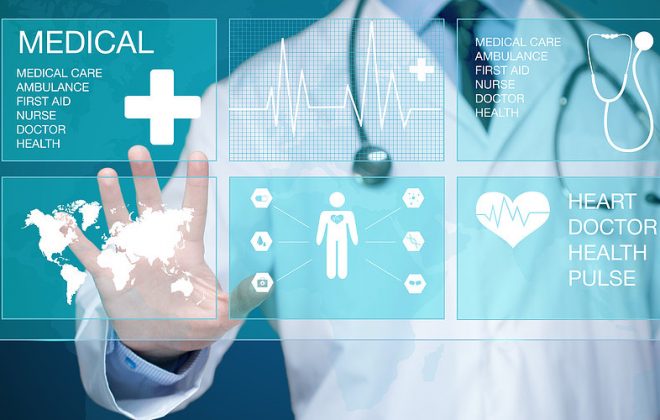Healthcare Consumerism and What It Means to Hospitals?
Health Consumerism is broadly defined as “a movement that advocates patients’ involvement in their own healthcare decisions. It is a movement from the ‘doctor says/patient does’ model to a ‘working partnership’ model.”
Health consumerism takes notes from the retail industry. The retail industry places a high value in offering a highly personalized experience, and the buyer is extremely involved in the buying decisions. The healthcare industry is also going on that path to address the demands of personalized healthcare solutions for consumers, based on their preferences.
The factors that influence healthcare consumerism include, but are not limited to,
- Growing demand for better physician-patient communication
- Compliance with various treatment recommendations
- Growing health awareness amongst patients
- Overall increase in healthy activities and habits
All these factors combined play a crucial role in enhancing the patient-physician partnership with the best results. Hospitals, just like retail brands, need to engage consumers today with cutting-edge solutions, in anticipation of their needs in the future.
That said, here’s healthcare consumerism could mean for hospitals:
It’s All About Providing Consumer Convenience
Modern-day consumers give more weightage to conveniencewhen they select healthcare services. This makes it essential for hospitals to offer convenience to consumers in every way possible.
Convenience could mean different things to different people. For some patients, it may be about hassle-free access to care. For others, it can be in terms of remote consultation. Healthcare providers, therefore, need to cover a vast ground.
For instance, Penn Medicine’s Princeton Medical Center has installed individual temperature controls in the rooms. This allows patients to adjust the temperature and feel comfortable during their stay. By offering them comfort, the healthcare facility definitely scores big among its consumers when it comes to convenience.
Empowered Customers Are Happy Customers
Patients are no more passive recipients of care. They are taking the center-stage and increasingly becoming more involved in making informed decisions about their health and expect the greater quality of services. To empower the customers further, healthcare providers need to come up with ways to provide them value and strive to make healthcare simple.
Consumers don’t just need excellent facilities, but excellent services as well. For them, empowerment means access to the complete and right information so that they can make more informed decisions about their health and treatment plans. Patients also feel empowered when they have easy access to accurate health-related information. Studies have also found that when patients are able to manage their conditions better, they feel more confident in the treatment. Needless to say, empowered patients can have more informed conversations with their caregivers and contribute to decision-making about their health. Technology can play a vital role in facilitating all such aspects and foster a stronger doctor-patient connection.
Customer Centricity Is Non-Negotiable
By focusing on customer needs that are immediate or otherwise, healthcare providers can drive value. This is where customer-centricity comes to play. Customer-centric healthcare can include real-time, round-the-clock care, enhanced communication, and coordination between the patients and the healthcare professionals, high-quality healthcare at reduced costs, and more such things.
It should be noted that when organizations keep customers at the center of their operations, they can easily gain an edge over their competitors. This can be done by understanding the customer segments and then knowing how the products and services can impact the segments. This takes us to the next point.
Data is Important for Enhancing Customer Experience
A Deloitte research found that hospitals with higher patient experience scores are generally more profitable than those with lower scores. Moreover, hospitals with more positive patient-experience scores also rank higher in certain quality scores than those with lower experience scores.
Additionally, in PwC’s Experience is Everything survey, respondents agreed that their experience with a company influences their purchasing decisions. This was especially in the case of healthcare, where 78 percent said experience drives their choices. And unlike other industries, consumers have less mobility in healthcare as switching healthcare providers may not always be the feasible option for them.
This is where data analytics can help as it can track patient and healthcare trends. With the insights collected, hospitals can chalk out the most appropriate treatment plans, that are highly customized based on the patients’ needs.
Take the case of four hospitals in Paris, which use data to come up with daily and hourly predictions of how many patients are expected to be at each hospital.
Healthcare Price Transparency is On the Cards
Just like in retail, healthcare consumers expect price transparency. Since they tend to spend a considerable chunk of their expenses towards quality healthcare, they demand increased price transparency that can help them understand the value provided by the providers.
More often than not, in the absence of quality information, consumers tend to assume that higher price translates to higher quality. As a result, they tend to opt for high-priced hospitals. But today, hospitals are pushed for price transparency as it gives patients a choice to select quality care at lower price tags. Patients need to be provided with actionable information, and patients need to know the healthcare costs upfront and not days after their visit to hospitals. For executing price transparency, a lot of cultural and technological changes need to be made. This can be an uphill task for the providers as the charge is mainly covered by insurance firms in bulk, and hence, they have a significant role to play here.
Technology can help healthcare providers offer cost information to the patients in an easy form to help them make an informed decision.
The Future of Healthcare Consumerism
Healthcare consumerism is going to rise in the coming years. It is one of the ways through which hospitals are going to meet and also exceed patient expectations. There are already several instances of how the healthcare systems are forced to overhaul their operations owing to the increasing demands from customers and intense competition. But only time will tell how the hospitals implement technologies it in their facilities and take healthcare experiences to new levels!




